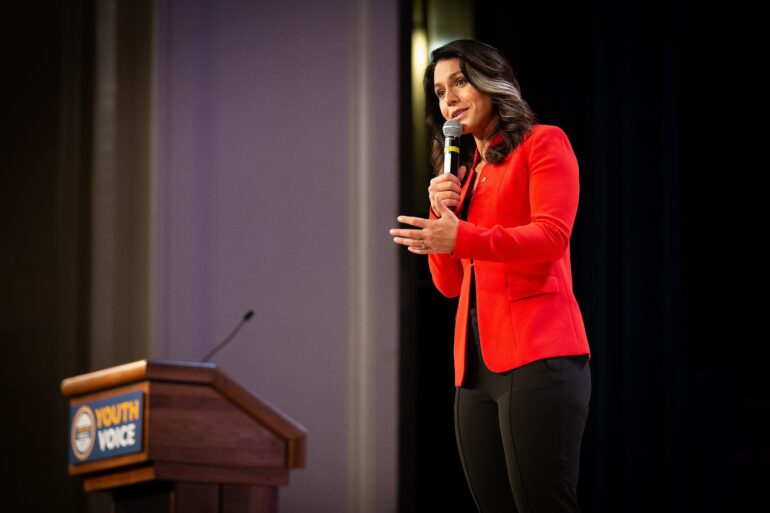Tulsi Gabbard, the Director of National Intelligence, has reportedly accused the media of misrepresenting her statements regarding Iran’s nuclear capabilities, following recent criticisms from President Donald Trump.
In a social media post on Friday, Gabbard asserted that her testimony had been taken out of context, leading to misinformation about her intelligence assessment.
“The dishonest media is intentionally taking my testimony out of context and spreading fake news as a way to manufacture division,” Gabbard stated, accompanied by a video clip of her earlier testimony.
She emphasized that the intelligence community believes Iran could produce a nuclear weapon within weeks to months if it chooses to finalize assembly, a position she aligns with Trump, who has expressed urgency on this matter.
Gabbard’s statements have drawn attention from both supporters and critics, particularly those opposed to military intervention in Iran.
While she acknowledged that the intelligence community currently assesses Iran is not actively building a nuclear weapon, she highlighted that the country is enriching uranium at unprecedented levels for a nation not pursuing nuclear arms.
The controversy intensified after Trump, in a recent press conference, dismissed Gabbard’s assessment, stating, “She’s wrong.”
This exchange occurred when a reporter questioned Trump about the intelligence community’s findings, which had reportedly indicated no evidence of Iran working towards a nuclear weapon.
Trump’s blunt dismissal of Gabbard’s credibility has raised concerns about internal coherence within his administration regarding Iran.
In her defense, Gabbard pointed to the potential dangers posed by Iran’s military capabilities, which include ballistic and cruise missiles capable of striking U.S. targets.
Her testimony also noted that Iran’s enriched uranium stockpile has reached its highest levels, which could embolden advocates for nuclear weapons within its decision-making circles.
The back-and-forth between Gabbard and Trump reflects broader tensions within the Republican Party regarding foreign policy and national security.
While some factions advocate for a more aggressive stance against Iran, others caution against military action, emphasizing the need for diplomatic solutions.
As the discourse continues, Gabbard’s assertions and the subsequent media scrutiny illustrate the complexities of navigating intelligence assessments in a politically charged environment.
The outcomes of these discussions will likely influence U.S. policy toward Iran as tensions remain high in the region.
[READ MORE: Mark Cuban Reveals He Turned Down VP Offer From Kamala Harris]



